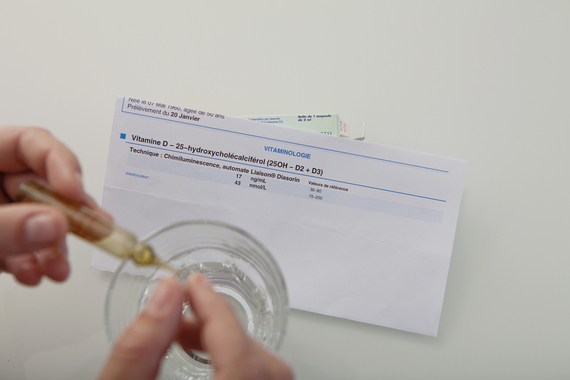
The fact is breast cancer affects 1 in 8 women. As early as the 1980’s, studies began looking at the link between Vitamin D and various types of cancer, including breast cancer. Animal studies have consistently shown a correlation between low Vitamin D and breast cancer, but this has been harder to prove in humans — until now. A research team looked at 77 studies addressing this connection and found some exciting results. They concluded that high Vitamin D levels may be associated with a lower death rate in patients with breast cancer. In one particular study, breast cancer patients with the highest Vitamin D levels had a 44% lower death rate compared to patients with low levels. Other newer studies show a connection between low Vitamin D and breast cancer recurrence and shortened survival.
An article recently ran in the Los Angeles Times speaking out against the use and overuse of vitamin supplements. The article pointed out there was no evidence to support vitamin supplementation decreases cardiovascular disease or cancer. The author noted one exception: Vitamin D.
Traditionally, Vitamin D has been known to help in the development and maintenance of bone by working with calcium and phosphorus. We know mild deficiencies of Vitamin D can increase your risk of osteoporosis and a severe deficiency can cause bone weakness and pain in children (rickets) and in adults (osteomalacia). Despite the fact that there has long been controversy surrounding whether Vitamin D’s benefits extend beyond bone health, Vitamin D is a health champion: Numerous observational studies have shown lower levels of Vitamin D are associated with an increased risk of heart disease, high blood pressure, depression, obesity, breast and colon cancer, rheumatoid arthritis, diabetes, multiple sclerosis and viral infections including the common cold.
Despite all this great news about Vitamin D, there are still some big questions when it comes to breast cancer. While the studies show benefits for women who already have the disease, what are the implications for everyone else? Do low levels of Vitamin D directly increase the risk of breast cancer? And can high levels protect women from contracting the disease to begin with? At this point, the best answer is we just don’t know. One study suggests low vitamin D levels are associated the an increase risk of premenopausal breast cancer. Scientists are exploring these connections, but at the moment we cannot make any definitive conclusions regarding Vitamin D and breast cancer prevention.
So given all these known benefits of Vitamin D, what’s the best way to get it? Scientists originally thought Vitamin D was an “essential vitamin”, meaning the body needed it to function, but couldn’t produce it on its own so it had to be consumed through food or as a supplement. It was later discovered Vitamin D could be made by the skin cells as a result of sun exposure…thus its nickname,
“The Sunshine Vitamin”
This would be a fantastic benefit except for the fact that we are living in a world where people spend less and less time in the sun and when they do, they’re covered in sunscreen. Here’s an eye-opening fact: It is estimated that 75% of people are deficient in Vitamin D. It is difficult to get this vitamin solely from our diet (unless you enjoy eating wild salmon, oysters and cod liver oil) and since there is less exposure to sunlight, Vitamin D deficiency has become an epidemic…worldwide!
We can see that it’s more important than ever to know your Vitamin D level and understand if supplementation is necessary for you. It is always best to get Vitamin D or any of your nutrient needs through food instead of through supplements, however, not everyone’s diet provides what they need. As part of a routine exam, I recommend to all of my patients a blood test to check for 25-hydroxyvitamin D. The normal range is 30-100ng/ml. The medical community is divided on the ideal number of your vitamin D level. I believe the best level for optimal health is having a Vitamin D level over 40-50ng/ml.
How much Vitamin D should you take? As with any vitamin or nutrient your body needs, it’s always best to get Vitamin D from dietary sources or by spending 10 to 15 minutes a day exposing your skin to sunlight. Since this can be challenging, supplements with 1,000 to 4,000IU of Vitamin D3 daily will ensure healthy levels. Vitamin D toxicity is extremely rare, but as with any significant dietary changes, check with your doctor if you have concerns.
Women who already have breast cancer should pay particular attention to their Vitamin D levels in light of the most current results on the connection between breast cancer and Vitamin D. While most people probably need to increase their Vitamin D, for these women, having blood levels above 40 to 50 ng/ml may reduce their risk of recurrence and increase the survival rate from breast cancer compared to those with lower levels.
Many call Vitamin D the”wonder vitamin” because of the overwhelming number of ways it benefits our health. Clearly every one of us should make sure we are getting what we need of this indispensable nutritional rock star. But in particular, women with breast cancer can confidently supplement their Vitamin D knowing it has definite benefits in living a healthy and longer life with breast cancer.
